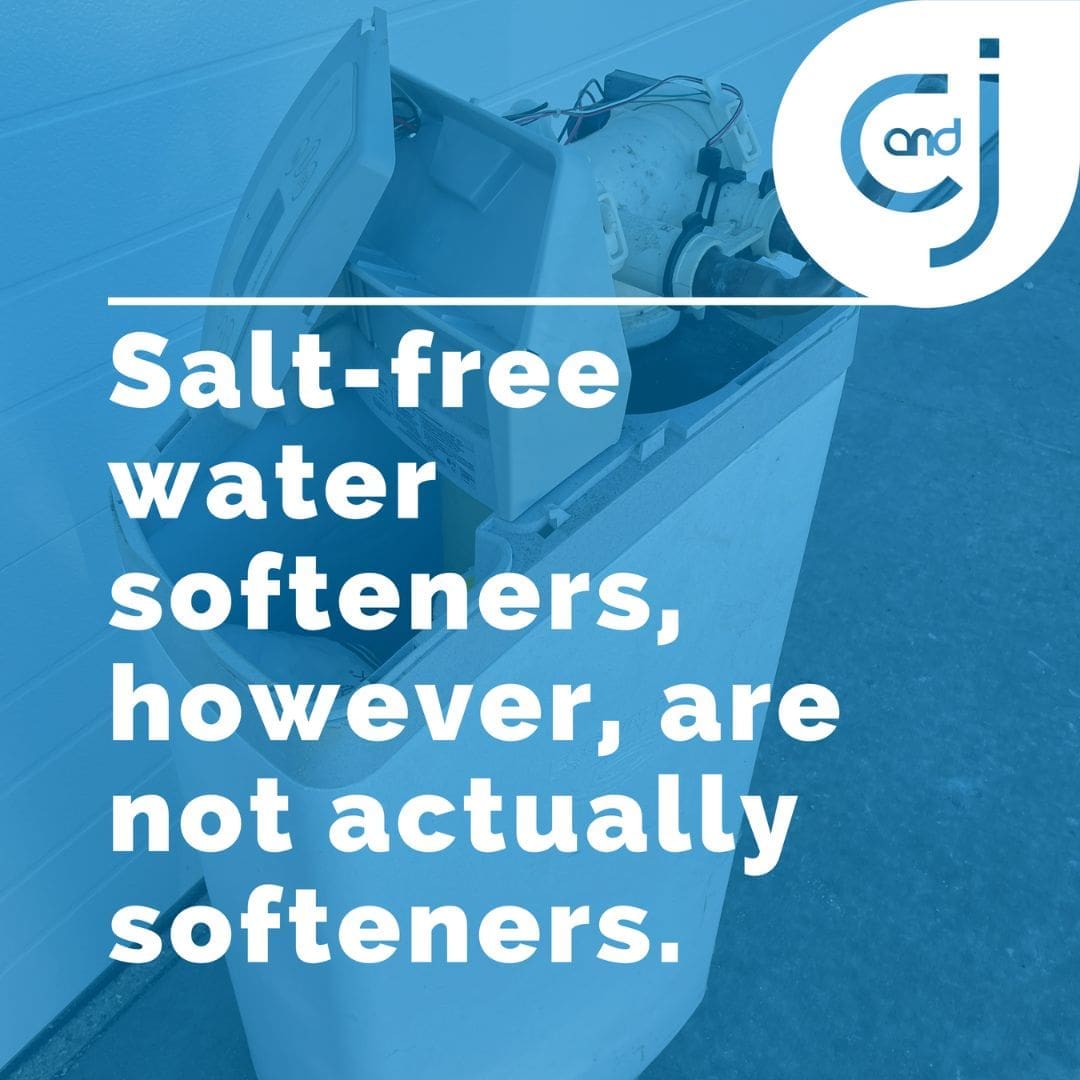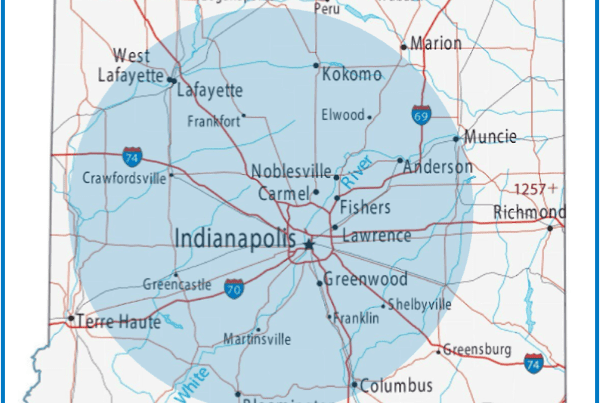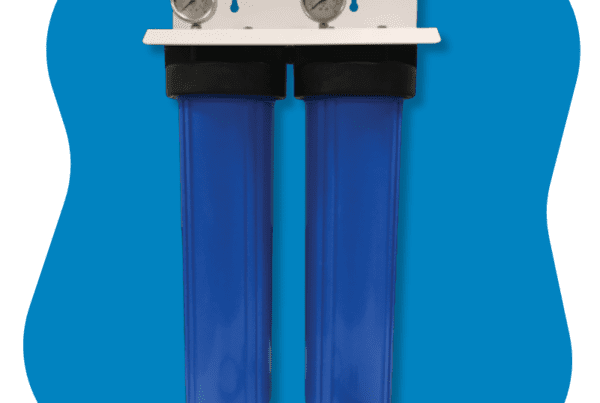What Is a Salt-Free Water Conditioner?
The term “salt-free water softener” is common in online searches—but it’s misleading. There really isn’t such a thing. Salt-free systems are better described as salt-free water conditioners.
- What they do: Salt-free conditioners change the way calcium and magnesium behave in water so they are less likely to stick to pipes and appliances.
- What they don’t do: They do not actually remove the hardness minerals as a softener would. A water hardness test will read the same before and after a salt-free system. You may notice water feels a little different on skin and clothes, and scale buildup can be reduced, but you won’t get the same benefits as true soft water.
What Does a Traditional Water Softener Do?

A water softener uses a process called ion exchange to remove hard water minerals like calcium and magnesium.
- How it works: Resin beads in the softener are charged with sodium ions. As water passes through, calcium and magnesium ions swap places with sodium. The hardness minerals stay trapped in the resin, while softened water flows into your home.
- Regeneration: When the resin fills up with calcium and magnesium, the system regenerates using a brine solution. This flushes hardness minerals away and recharges the resin with sodium.
A softener delivers water that is easier on skin, hair, clothing, appliances, and plumbing. Hard water spots, scale, and buildup are dramatically reduced.
Pros and Cons of Salt-Free Water Conditioners
Advantages:
- No salt or heavy bags to haul
- No drain access needed
- No electrical supply required (in most systems)
- Reduced scale buildup in pipes and appliances
- Lower maintenance than softeners
Limitations:
- Do not actually soften water
- Hard water spots and soap scum may still occur
- Effectiveness varies by water chemistry and household usage
- Cannot be verified with a hardness test
Types of Salt-Free Water Conditioners
There are two different technologies that C and J Water can offer as “salt-free” systems:
- TAC (Template Assisted Crystallization): Converts calcium and magnesium into tiny crystals that flow through water instead of sticking to surfaces.
- Polyphosphates: Add a food-grade chemical that coats minerals to reduce scaling (often used in commercial applications).
Which Is Better: Salt-Free or Salt-Based?
Salt-free conditioners can be helpful in situations where:
- You don’t have access to a drain or power outlet
- Carrying salt bags is difficult
- You want scale reduction without full softening
But if your goal is to eliminate hard water problems, a traditional water softener is the clear choice. Softened water feels better on skin, makes soap lather easily, and protects your plumbing. Not sure which system is right for you? Contact the experts at C and J Water for a free water analysis and specific recommendations to meet your needs.




